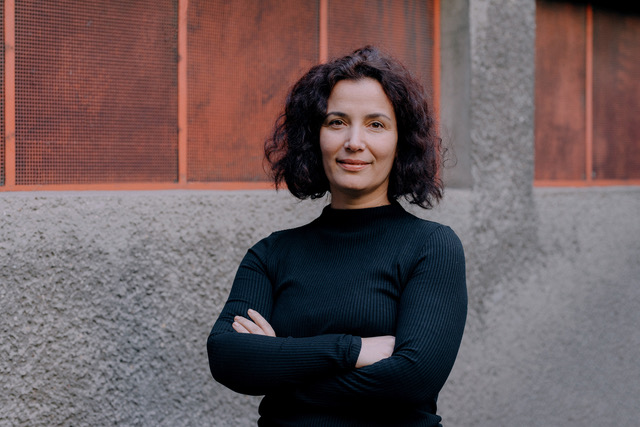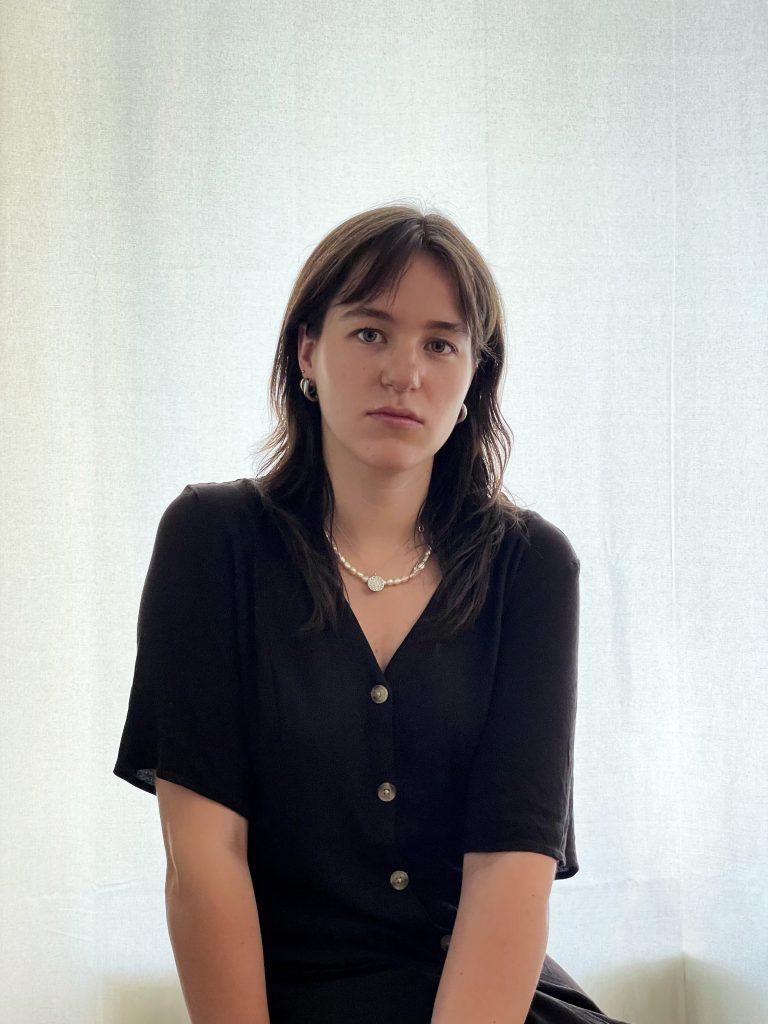PED-ACT was a international collaborative project focussed on developing Positive Energy Districts in partner countries.
Project Status:
Project Location(s):
Project Dates:
Project Contact:
PED-ACT (Positive Energy Districts – Action) is a transnational research and innovation project focused on enhancing the development, replication, and upscaling of Positive Energy Districts (PEDs) as a key strategy for achieving climate neutrality and smart cities. While PEDs—urban districts that produce more energy than they consume—are increasingly recognized as essential for sustainable urban futures, many cities are still in the early stages of developing them. PED-ACT addresses this gap by optimizing the development process, reinforcing stakeholder collaboration, and supporting evidence-based decision-making.
An overview of ECs and PEDs
An energy community creates a form of an informal or formal governing body to allow an energy exchange among the members. In contrast, a Positive Energy District (PED) aims to optimise this equation towards carbon neutrality but does not pre-conditionally require a governing body to oversee or manage this process. This tasks or job can be done, if at all by a cooperative, an authority, a company, a service provider, or an energy community
The project contributes to the standardization of a European PED database, mapping and analyzing planned, designed, and implemented PEDs with a focus on Sweden, Turkey, and Austria. Through this, it builds a digital reference framework that supports tailored, local implementation. By applying machine learning techniques, PED-ACT automatically characterizes PEDs and matches them with stakeholder priorities identified in five participating regions: Borlänge and Umeå (Sweden), Ankara and Karşıyaka-İzmir (Turkey), and Lower Austria.
Through bilateral learning and co-design among these pilot cities, PED-ACT enables peer exchange and supports localized strategies for wide replication. The project empowers municipalities, public administrators, and stakeholders by providing tools, references, and insights needed to develop effective PED pathways. Ultimately, PED-ACT strengthens planning processes, fosters cross-sectoral cooperation, and accelerates the transition toward energy-positive, climate-neutral urban districts across Europe.
Energy communities are local groups that collaborate and invest in sustainable energy solutions. By operating as a unified entity, these communities gain access to relevant energy markets and are equitable. There are 9,000+ reported energy communities throughout the EU, but their distribution among different countries varies. Their structures, operations and even goals or purposes differ. Some are smaller, others are bigger in scale. Some receive municipality support, others function as independent NGOs. Some also engage in environmental protection, while others might be interested in developing new technologies.
The wide range of cases available required us to study different communities around Europe and compare their similarities and differences, local challenges and realities, citizen involvement and management methods and more.
PED-ACT focuses on process optimization for enhanced stakeholder cooperation and reinforced decision-making by contributing to the standardisation of the database of existing PEDs (planned, designed or implemented) with a focus on Sweden, Turkey and Austria. The project learns from the database and creates digital PED references by mapping stakeholders’ needs and priorities in the cities of Borlänge (Sweden), Umeå (Sweden), Ankara (Turkey), Karsiyaka (Turkey) and Schönbüchel-Aggsbach in the county of Lower Austria (Austria).
PED-ACT pursues bilateral learning and co-design strategies among different cities for wide replication of PEDs towards ‘climate–neutrality and smart cities’ goals.
The social dimension of Positive Energy Districts (PEDs) is often undervalued compared to their technical components, despite being critical to their long-term success and public acceptance. In PED-ACT, we addressed this imbalance by developing a comprehensive evaluation framework—the PED Matrix—that gives equal weight to social, environmental, legal, governance, financial, managerial, and technical aspects. By systematically assessing elements like inclusiveness, community engagement, governance structures, and social impact, the matrix ensures that human factors are integrated into PED planning and implementation from the outset. This approach acknowledges that energy transitions are not just technological shifts, but social transformations that require participation, trust, and shared values. Through our case studies and evaluations, we demonstrated that socially embedded PEDs are more resilient, equitable, and likely to succeed—highlighting the importance of co-creation, transparency, and local ownership in shaping sustainable energy futures.
The principles presented in the PED Matrix can significantly assist in creating a democratic, inclusive, and effective organisational structure. It is evident that an energy project has a combination of different, complex, interrelated tasks to be mastered. For a more detailed and case-by-case analysis of the imapct of the PED Matrix, have a look at our case studies here.
We compiled the knowledge and know-how gathered through the PEDACT project into a manifesto outlining a holistic approach and making demands for the transition.
The manifesto sees the energy transition as a three pillared pathway: economic, ecological, and social sustainability. While the first two are generally placed at the core of energy projects, the aspect of social sustainability is generally weakly developed, creating a need to focus on this essential component. The manifesto builds on the premise that energy transition is a cross-collaboration among various actors and recognizes the work and significance of local actors and needs to be utilized in conjunction with local action plans or road-maps by a variety of actors.
It aims to help reinforce and build on the local work, while stimulating a just and inclusive energy discourse. As a result, the manifesto may have local shades and versions as well as updated and adapted versions. Groups/stakeholders of the quadruple helix model are the main target groups of this manifesto. The entities in these groups may differ from context to context. Entities and groups of people have to be identified for each local adaptation of the manifesto in the fields of government/public entities, academic groups or organizations, industry representatives, consultants and companies, as well as citizens, citizen groups and citizen advocates.
The PED Manifesto is designed in 3 parts. The first part connects issues and the need for collective actions, while introducing and emphasizing the emergency and urgency of the topic. The second part lays out the crucial content for a successful project and describes the mentioned eight aspects and their impact. The third chapter summarizes the needs related to the energy transition via concrete citizen demands from decision makers. The demands are outlining the principles that describe what is important when engaging in an energy project. Access the manifesto in our project library below.
Every project we take on brings together a range of interconnected layers—environmental, legal, financial, social, technical, governance, and managerial. We approach our work holistically, making space for participation, shared understanding, and collaboration across all these dimensions. It’s how we ensure that our partnerships are grounded, inclusive, and responsive to real-world complexity.
For any project aiming to create lasting, sustainable change—especially within the context of transition and transformation—these layers can’t be treated separately. They interact, overlap, and shape one another. Identifying key markers and themes across these categories helps guide the process, ensuring that the outcomes are both robust and adaptable.
Engagement plays a central role in this. Meaningful participation allows all stakeholders to contribute to a shared vision, while transparency builds trust throughout the journey. Different levels of involvement—from broad outreach to hands-on co-creation—ensure that communities are informed, empowered, and actively shaping the process. Inclusivity isn’t just a goal; it’s a foundation. When diverse voices are heard and respected from the beginning, the result is a more democratic, resilient, and impactful project.
Here are some of the core aspects we explore and connect through our work, listed below:
As Wonderland, we created workshops to help key stakeholders exchange and find common ground, and transform the highly technical information related into articles, documentaries, case studies and visualizations. Some of our main contributions to this project is the creation of the PED Manifesto (which you can access below or through this site) and the scoring system which ensures the social aspects are valued as a main part of a successful evaluation system.
Research and advocacy are at the heart of everything we do. Each of our projects is a journey into understanding— both technically as well as socially—and we’re always looking for creative ways to share what we learn. From films and interviews to visuals, manifestos, publications, and hands-on manuals, our outputs take many forms, depending on the people involved and the story being told.
Our project libraries reflect this diversity, and we’ll keep adding to them as our work evolves. But it’s not just about knowledge—it’s also about action. We use what we learn to advocate for change, support bottom-up initiatives, and create space for citizen participation. Because a fairer, more sustainable future needs everyone at the table.
Every project teaches us something new—and we make sure to reflect on those lessons and turn them into something useful. Whether it’s a paper, a hands-on manual, or a more experimental publication, we use these formats to raise awareness, advocate for change, and share what we’ve learned along the way. Writing is part of our method, but so is making that knowledge accessible. Below, you’ll find some of the materials connected to this project. Feel free to download and use them however you like—everything we create is copyright-free, because we believe knowledge should be open to all.
How can energy communities and Positive Energy Districts (PEDs) complement and support each other? In the manifesto, we’ve highlighted a framework applicable to various concepts in the energy transition.
To accelerate progress, the manifesto emphasizes the need for a comprehensive understanding of PEDs, covering social, process, technical, governance, environmental, legal, financial, and managerial aspects.
It also underscores essential demands, including carbon pricing, public investment in sustainability, innovation in clean energy, industry transformation, and climate justice.
Immediate actions are crucial: engaging in energy projects, investing in sustainability, using green energy, promoting active mobility, collaborating with energy communities, upgrading homes and workplaces, and advocating for better policies.
The manifesto analyzes how an energy transition project can be successful and sustainable; and is built around five core demands through which stakeholders, decision-makers, and citizens can work towards reaching social consent. These demands are followed by ten actionable recommendations that can immediately be applied and activated by any citizen or stakeholder. However, this paper focuses specifically on the methodology used in developing the manifesto and the five demands. The PED Manifesto is a public document, accessible to all and open to broad support. At the same time, it can serve both as a foundation for the development of specific PED projects, funding calls, policies, and partnerships, and as a guide to understanding how projects should be structured across different dimensions to promote awareness and participation, which we believe are key to enhancing advocacy and long-term impact.
The energy sector is perceived as a technological field, in which many citizens have very little knowledge or rights to make decisions. If we insist on keeping this top-down culture, we cannot profit from the potential contribution of citizens and will be forced to rely only on the capacities of a few decision makers, as has already been done over the last decades. Especially in PED projects, the citizens are expected to change their behaviours (in energy consumption) to enhance energy flexibility, but they are not an involved actor of the process. If we do not change this dynamic, we believe technology will not be able to contribute as desired towards the energy transition agenda.
Learning objectives resulting out of the PED-ACT project are and outlined in this paper:
1 : a clear role for citizens in PEDs
2 : a clear say for citizens in PEDs
3 : a clear reward system for citizens in PEDs
Bürger*innenKRAFTWERK , located in Aggsbach by the Danube river, in Lower Austria, is one of the energy communities we collaborated with on this project. The main purpose of the community is (of course) to produce energy from sustainable sources, however what caught our interest was how strong their social aspects were. The initiative consists of concerned citizens with a desire to improve sustainable living and awareness in their communities. They are active in a series of regional projects (all initiated through their energy community), including taking part in helping toads safely cross a regional road, organizing tours on the history of the region, and even community cooking events. The community exemplifies how social aspects can play a crucial role in ensuring the sustainability and continuity of energy communities. You can read our article on the BürgerinnenKRAFTwerk community under the energy communities section on this site.
The PED manifesto was born out of our experiences while creating positive energy districts for case studies in the DUT-funded PED-ACT project.
Through the participation processes we were engaged in, we realized that a crucial part of establishing PEDs was to bring citizens and citizen groups together, to help them develop and initiate projects in their own way. We also realized society exists as part of structures that determine and allow space for courses of actions, so the energy transition requires much more than technical solutions. It requires a holistic approach. We created these posters to help visualize the manifesto and our approach better.
Engagement is a cornerstone of transition projects and lies at the heart of the manifesto. Meaningful participation ensures that all stakeholders contribute effectively toward a shared vision of carbon neutrality. Transparency is key, with engagement tools tailored to different levels of involvement—broad outreach provides clear information to wider audiences, while active participants take part in co-creation efforts. A range of engagement levels ensures that communities are proactively involved, diverse perspectives are respected, and participants understand their roles. Inclusivity is essential, as is allowing all voices to be heard and valued. A diverse mix of backgrounds strengthens the process, and early involvement gives people a chance to shape decisions in a democratic manner, with opportunities for active participation.

Moka Sheung Yan is an interdisciplinary artist with a background in fine arts, sculpture, and visual storytelling. She studied at the London College of Arts and the University of Applied Arts Vienna. Centering on themes of identity, transformation, and social perception, her artistic research investigates questions of social visibility, vulnerability, and the fragmented self—probing how cultural norms and societal structures shape personal and collective identity.

Vienna-based media artist and social designer Danny Nedkova (b. 1995) employs a diverse range of media—including photography, film, text, and installation—to explore themes of social significance. With a background in design and photography, Danny blends her perspective as a social designer with the visual sensibility of a photographer. Her design practice focuses on speculative, process-based approaches, with storytelling and communication as foundational pillars.

A sustainability-focused urbanist integrating climate and heritage conscious solutions into socio-spatial transitions, urban development, governance, and research.

Bahanur Nasya is an architect, researcher, project manager, and film producer. She has studied in Vienna and Barcelona, specializing in sustainable architecture, just and fair community-centered-scenarios, and future-proof development concepts.

Film and video artist, researcher, writer. Subjects of interest include community activation, social inclusion, sustainability, hyper-capitalism, individuality and precaritization, totalitarian systems of thought (cults), and coercive thought reform. My methodology includes ethnographic research, reflection, categorization of common patterns and the creation of what I call “poetic moments of visual exploration through fiction.”

Emily is currently pursuing her master’s in architecture in Vienna, Austria. In addition to her studies, she is especially interested in literature, philosophy and the visual arts and is looking for ways to combine these interests with her own work.
Find a compilation of project related news, events and more, below.